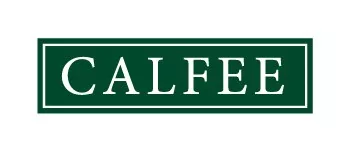- within Family and Matrimonial topic(s)
- in United States
- with readers working within the Media & Information industries
- with readers working within the Media & Information industries
- within Real Estate and Construction and Intellectual Property topic(s)
- with Senior Company Executives, HR and Inhouse Counsel
The selection of your executor and/or trustee (also referred to as your "fiduciary" or "fiduciaries") is among the most important decisions you will make in establishing an estate plan. Your chosen fiduciary will one day manage all (or nearly all) of your assets, and it is up to them to effectuate the intentions you have written down in your will and trust. It is nearly a full-time job, yet there is a tendency for individuals to default to their spouse, oldest child or the family member they get along with best, without taking account of the person's skillsets or relationships with other family members.
The instinct toward choosing a family member to serve as fiduciary is understandable and, often, the right choice. Many corporate fiduciaries will not accept appointments without assets under management over a mandatory minimum (anywhere from $1 million to $10 million depending on the institution). Further, individual fiduciaries afford a more personal approach to making discretionary distributions, or they may have prior experience with a family business or other unique assets of yours that makes them well-suited to serve as your fiduciary.
None of the foregoing considerations are sufficient in and of themselves in choosing an individual or corporate fiduciary. Instead, you should be able to answer "yes" to each of the following sets of questions for any family member who is a candidate to be named as your fiduciary.
First, could your candidate family member keep the books for a business? Do they file their own taxes or work closely with an accountant to do so? At a minimum, if your family member cannot review an accounting statement and/or tax return prepared by a CPA or attorney for accuracy and completeness, they are not well-equipped to serve in this role. To make up for these missing skills, such a fiduciary will be forced to incur additional professional fees and possible administrative delays.
Second, you need to carefully assess each candidate family member's relationship with the other persons named in your estate plan. Relatedly, do you trust this family member to understand and carry out your intent? Remember, your death is more likely to expose rifts rather than to mend them, so picking someone with the skills for the job but who has a fractured relationship with your other beneficiaries is likely to create more problems than it solves.
Under these analyses, there will be many situations where a third-party fiduciary (such as a bank, trust company or professional individual fiduciary) should be considered. If you are considering nominating a corporate fiduciary or professional individual fiduciary in your estate plan, you should discuss this with the candidate (an institution or an individual) and obtain their provisional agreement to serve as fiduciary before signing your estate plan. In some cases, consolidating your asset management with a corporate fiduciary (or affiliate thereof) will help ensure that the titling of assets aligns with your estate plan and that you are meeting the corporate fiduciary's mandatory minimum assets under management. For those hesitant to sideline their family on matters such as management of a business or making discretionary distributions, the appointment of a family member to serve as "trust advisor" may strike a balance.
Each estate plan is different, and the choice of nominating a family member, corporate fiduciary or professional individual fiduciary cannot be made in a vacuum. Forthright conversations with counsel on the above issues are critical to ensuring your intentions are not only expressed in your documents, but correctly and efficiently carried out.
Originally published by Crain's Cleveland Business, 21 July 2025
The content of this article is intended to provide a general guide to the subject matter. Specialist advice should be sought about your specific circumstances.


